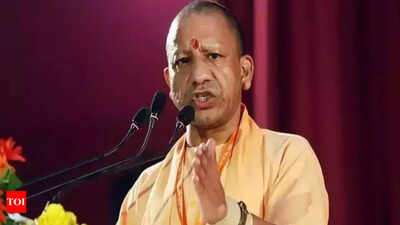
In his address, Adityanath firmly rejected the opposition's objections to the chant, which has been a source of controversy in various political and social contexts. He emphasized that "Jai Shri Ram" is not a provocative slogan but a symbol of faith for millions of Hindus in the state. According to him, the chant should be understood as an expression of religious devotion and not as an incitement to violence or division.
Addressing the assembly, Adityanath posed a pointed question to the opposition, challenging their stance on religious expressions. He questioned how opposition leaders would react if Hindus were to ask Muslims to stop chanting "Allahu Akbar," highlighting what he perceived as a double standard in the approach to religious freedom. His comments underscored a broader political and cultural debate about the role of religion in public life and its potential to shape political discourse in the state.
The Chief Minister's defense of the "Jai Shri Ram" chant comes amid growing tensions in Uttar Pradesh, where religious slogans have become a flashpoint for political discourse. Over the past few years, the chant has been invoked by various political and religious groups, often leading to debates about its appropriateness in public spaces. While supporters of the chant argue that it is a harmless expression of faith, critics claim that it has been politicized and used as a tool to polarize communities along religious lines.
In Uttar Pradesh, where Hindu-Muslim relations are a sensitive issue, the "Jai Shri Ram" chant has often been at the center of controversy. It has been used in political rallies, religious processions, and even during public demonstrations. For many Hindus, the chant is a call for unity and a reaffirmation of their faith. However, for some Muslims and secular groups, the chant has taken on a more divisive connotation, with concerns about its potential to alienate minority communities.
Adityanath's comments are not the first time he has defended religious expressions in the public sphere. As Chief Minister, he has consistently positioned himself as a staunch advocate for Hindu religious sentiments. His administration has taken steps to promote religious symbolism, including the development of temples and other Hindu religious sites, and has supported initiatives that emphasize Hindu cultural values. This approach has earned him the support of many Hindus, but it has also drawn criticism from opposition parties and secular organizations, who argue that it risks marginalizing minority communities.
The controversy surrounding religious slogans and their place in politics is not unique to Uttar Pradesh. In other parts of India, similar debates have emerged over the use of religious symbols and slogans in public spaces. These discussions often center around the question of whether religious expressions should be allowed in the political arena or whether they should remain private matters. Critics argue that the intersection of religion and politics can lead to the exploitation of religious sentiments for political gain, potentially exacerbating social divisions.
At the heart of the debate is the issue of religious freedom and whether it should be upheld in a way that respects the diverse beliefs of all citizens. Adityanath's defense of the "Jai Shri Ram" chant reflects his broader political philosophy, which emphasizes the importance of protecting Hindu religious rights and ensuring that they are not suppressed by political correctness or secular ideologies.
In his speech, Adityanath also expressed frustration with what he described as the selective outrage of opposition leaders. He accused them of focusing on the "Jai Shri Ram" chant while ignoring other forms of religious expression that may be more controversial. His remarks suggest a deepening polarization in the state, where religious identity is increasingly intertwined with political affiliation.
The Chief Minister's strong defense of the chant has sparked reactions from both his supporters and critics. While many of his followers have praised him for standing up for Hindu religious rights, others have raised concerns about the potential consequences of his comments. Some fear that his remarks could fuel communal tensions and lead to further polarization between religious communities.
Opposition leaders have also reacted strongly to Adityanath's defense of the chant. They have accused him of using religious issues to divert attention from more pressing matters, such as unemployment, inflation, and law and order. They argue that his focus on religious slogans is a tactic to consolidate his political base among Hindu voters, at the cost of alienating other communities.
The debate over the "Jai Shri Ram" chant is emblematic of broader societal and political trends in India, where religious identity is playing an increasingly central role in shaping public discourse. The use of religious slogans in political campaigns, rallies, and public demonstrations has become a common feature of Indian politics, particularly in states like Uttar Pradesh, where the Hindu vote is a key determinant of electoral outcomes.
